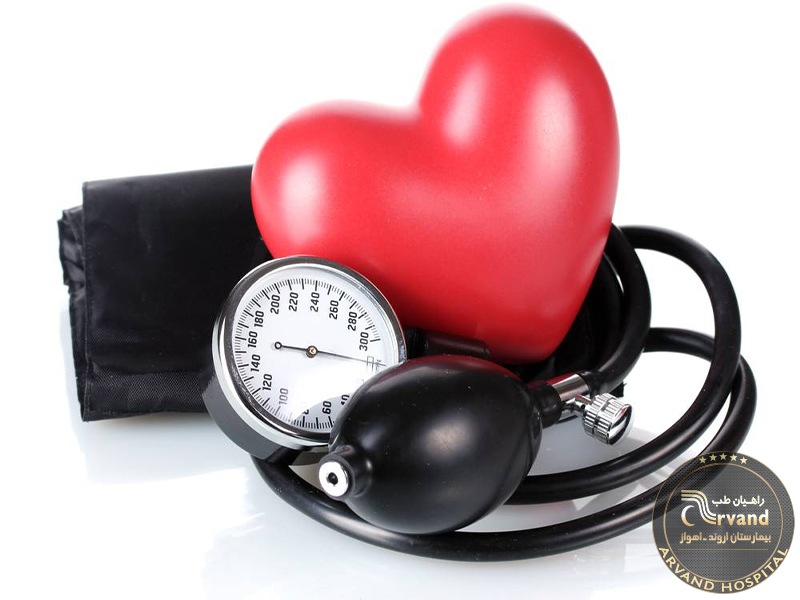
Arvand specialized hospital...

Arvand specialized hospital...

High blood pressure, forgotten disease
Blood pressure in the arteries of the body is referred to as compression of the heart muscle, hypertension or systolic, and expansion during low blood pressure, and when writing, they are marked / separated, for example, "12.8cm or 120/80 mm Hg.
In heart disease both high blood pressure (systolic) and low blood pressure (diastolic) are important. However, diastolic blood pressure above 50 years of age and systolic blood pressure above 50 years is more important.
Unfortunately, because mild to moderate hypertension is not accompanied by acute and severe symptoms and symptoms, it is often neglected until complications such as heart failure, stroke, kidney failure and severe eye complications occur. .
Only less than half of people with hypertension are aware of their condition and many are not treated.
Predisposing factors for blood pressure
Inheritance: If a family member has hypertension, the other family members are more likely to develop hypertension.
Age: Hypertension is more likely to increase with age.
Obesity: People who are overweight are more likely to develop hypertension. Blood pressure in obese people is 2-6 times higher than in people who are not overweight.
Gender: By age 45, hypertension is more common in men but at age 45 to 54 the risk is equal in both sexes.
The most important characteristic of this disease is its asymptomatic condition, so the most important obstacle in diagnosing and controlling hypertension in the community is having no symptoms.
Morning headaches, dizziness and blurred vision
Symptoms of heart, brain or kidney complications
Symptoms of secondary hypertension depend on the underlying disease, for example, polyuria and thirst in patients with hyperaldosteronism. Weight gain and muscle weakness in Cushing's syndrome, headache, palpitations, and sweating in the pheochromocytoma.
Salt Removal Prevention of Hypertension
Don't eat high-salt foods like fast foods, canned foods, salted fish, etc.
Use raw nuts and raw nuts.
- Use aromatic spices and vegetables to taste the food rather than the salt.
Physical activity, a factor in lowering blood pressure
If it is necessary to use the bus or subway to get home or work, get off one or more stations before reaching the bus destination, take the rest of the route and walk the rest of the way to the farthest station for Take a walk or ride to reach your destination.
Control blood pressure by avoiding smoking
Tobacco smoking can increase your heart rate, your risk of hypertension, your arteries, and eventually your heart attack and stroke.
Being exposed to cigarette smoke also puts us at risk for high blood pressure.
Nutritional recommendations for the prevention of hypertension
Eat foods high in calcium, such as low-fat dairy products.
Eat high-potassium foods like bananas, oranges, tomatoes, and kiwi.
Eat fish at least twice a week.
Eat lean meat.
Do not use salted foods such as: fast food, sausages, sausages.